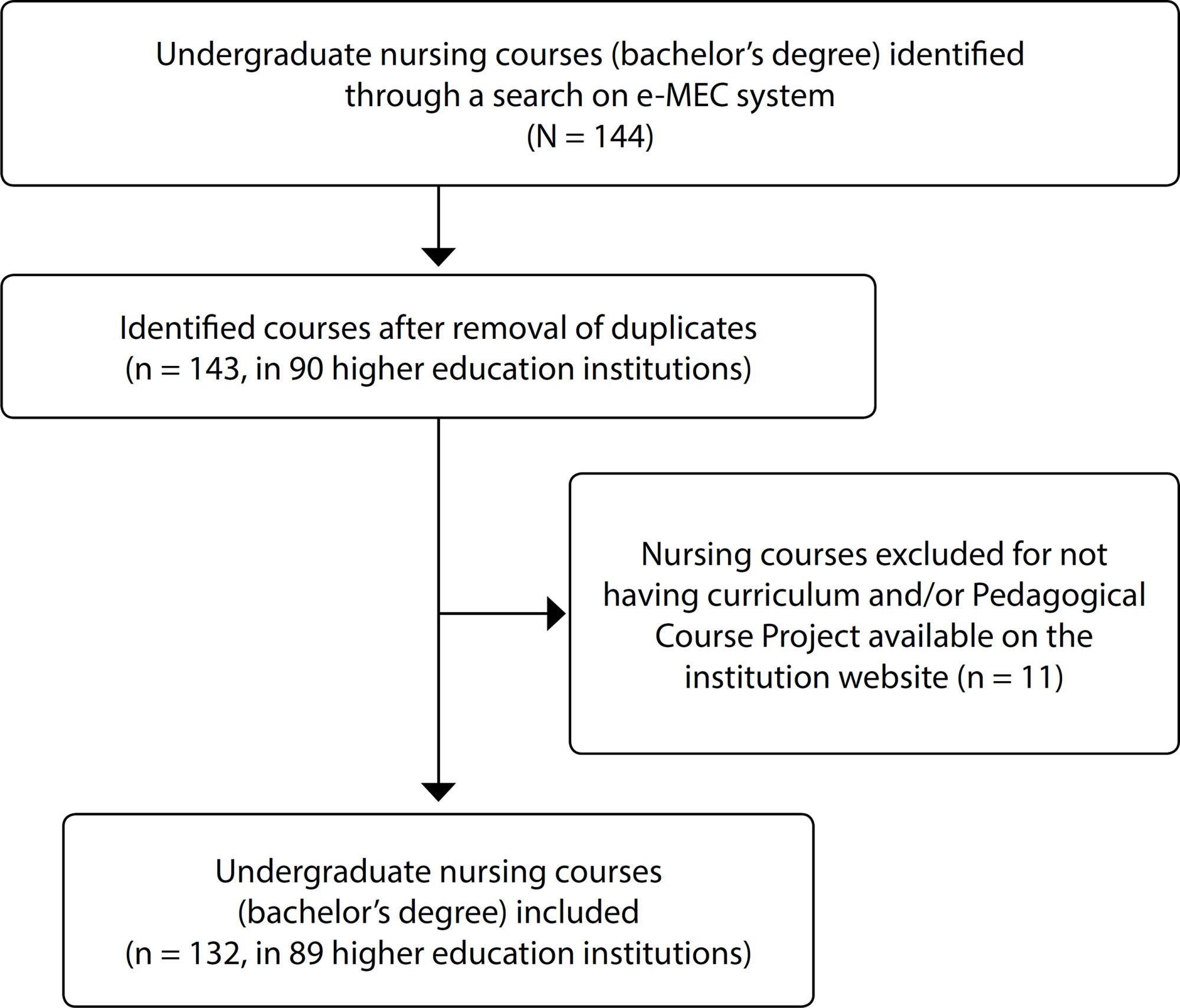-
ORIGINAL ARTICLE
Undergraduate nursing students’ knowledge and experience in infusion therapy and peripheral vascular acces
Revista Brasileira de Enfermagem. 2023;76(3):e20220219
08-07-2023
Resumo
ORIGINAL ARTICLEUndergraduate nursing students’ knowledge and experience in infusion therapy and peripheral vascular acces
Revista Brasileira de Enfermagem. 2023;76(3):e20220219
08-07-2023DOI 10.1590/0034-7167-2022-0219
Visualizações0ABSTRACT
Objectives:
to analyze the knowledge and experience of undergraduate nursing students regarding infusion therapy and peripheral vascular access.
Methods:
descriptive, cross-sectional, analytical study with 123 undergraduate nursing students who answered a semi-structured instrument.
Results:
the majority were women, with a median age of 51 years old; 87% considered the teaching received insufficient to perform in clinical practice. The mean overall knowledge score was 78.1 (SD± 8.97). The themes catheter flushing and lock (38.1%), catheter selection (34.2%), infusion equipment (30.9%) and insertion site (30.9%) presented a significant number of errors.
Conclusions:
practical classes and execution of procedures in health services were predictors for a better knowledge about infusion therapy and vascular access by undergraduate nursing students.
Palavras-chave: Education, NursingEducation, Nursing, Diploma ProgramsKnowledgeNursingVascular Access DevicesVer mais -
REFLECTIVE
Perioperative nursing education in Brazil: reviewing the past to survive the future
Revista Brasileira de Enfermagem. 2022;75(3):e20210331
09-23-2022
Resumo
REFLECTIVEPerioperative nursing education in Brazil: reviewing the past to survive the future
Revista Brasileira de Enfermagem. 2022;75(3):e20210331
09-23-2022DOI 10.1590/0034-7167-2021-0331
Visualizações0ABSTRACT
Objectives:
to summarize historical aspects related to perioperative nursing education in Brazil and to outline future perspectives.
Methods:
a descriptive-reflexive essay about the historical process of Brazilian perioperative teaching at undergraduate and graduate levels.
Results:
the reflection addresses the historical axes of perioperative nursing, teaching perioperative nursing, curriculum changes, graduate studies and relationship with the perioperative period and trends in perioperative nursing education. Curriculum changes reduced time available for teaching and learning, with a focus on the perioperative period, and diluted contents of surgical nursing in other subjects, which could cause irreversible losses for generalist nurses’ training.
Final Considerations:
when reviewing historical aspects of national nursing curricula, it was found that the nomenclature perioperative nursing was never used in the curriculum, however, the surgical area has always been contemplated in undergraduate and graduate studies. Future trends indicate the need to integrate themes and prepare professionals with perspectives focused on global health and technology.
Palavras-chave: BrazilEducation, Nursing, BaccalaureateEducation, Nursing, Diploma ProgramsEducation, Nursing, GraduatePerioperative CareVer mais -
ORIGINAL ARTICLE
Oncology teaching in undergraduate nursing at public institutions courses in Brazil
Revista Brasileira de Enfermagem. 2021;74(2):e20200851
05-21-2021
Resumo
ORIGINAL ARTICLEOncology teaching in undergraduate nursing at public institutions courses in Brazil
Revista Brasileira de Enfermagem. 2021;74(2):e20200851
05-21-2021DOI 10.1590/0034-7167-2020-0851
Visualizações0ABSTRACT
Objectives:
to identify the occurrence of oncology teaching in undergraduate nursing curricula.
Methods:
descriptive study, which data was obtained from curriculum and from Pedagogical Course Projects available on the websites from Brazilian public institutions, between June and July 2020.
Results:
143 undergraduate nursing courses were identified. From them, 132 nursing courses (corresponding to 89 education institutions) had available the curriculum and/or Pedagogical Course Projects. Only 7 (5.3%) of them had oncology as a mandatory subject, 4 of them in the Midwest Region. Only 35 (26.5%) had elective subject in Oncology, most of them in the Northeast (45.7%).
Conclusions:
on third of nursing courses at public institutions has Oncology subject in the curriculum, which is few considering the high incidence and mortality from cancer in the country. The findings contribute for discussions, in curricular accommodation, on the relevance of oncology teaching in nursing curricula.
Palavras-chave: CurriculumEducation, HigherEducation, NursingEducation, Nursing, Diploma ProgramsNeoplasmsVer mais



